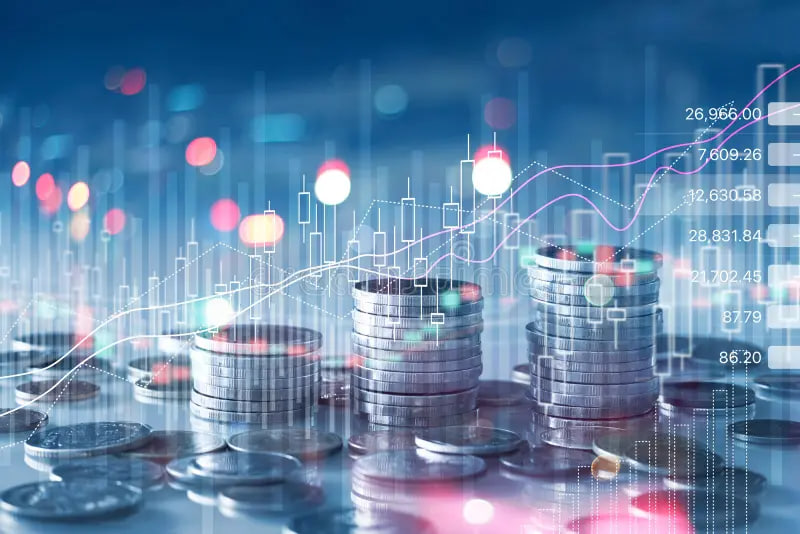Egypt's Economic Pulse: Decoding the 2.4% GDP Growth in Q2 2024
Meta Description: Dive deep into Egypt's Q2 2024 GDP growth of 2.4%, analyzing factors contributing to this modest increase, challenges facing the Egyptian economy, and future economic prospects. Explore expert insights and data-driven analysis for a comprehensive understanding. Keywords: Egypt, GDP, Economic Growth, Q2 2024, Egyptian Economy, Economic Analysis, Central Bank of Egypt, Inflation, Foreign Investment.
Imagine this: You're a seasoned economist, poring over economic indicators, deciphering the subtle shifts and currents in a nation's financial bloodstream. The latest figures for Egypt's GDP growth in Q2 2024 are in – a modest 2.4%, a slight improvement over the previous quarter's 2.2%. But the numbers, as always, tell only part of the story. Behind this seemingly small increment lies a complex tapestry of economic forces: the ripple effects of global inflation, the ongoing impact of geopolitical instability, the government's ambitious reform agenda, and the resilience of the Egyptian people. This isn't just about dry statistics; it's about real people, their livelihoods, their hopes, and their anxieties. It's about understanding the challenges and opportunities that shape Egypt's economic future. This in-depth analysis will not only dissect the 2.4% figure but also provide a holistic perspective, drawing on firsthand knowledge and reputable sources to paint a clear picture of the Egyptian economic landscape. We’ll explore the factors driving this growth, the hurdles that remain, and what the future might hold for this vibrant nation. Prepare to delve into a nuanced understanding of Egypt's economic journey, far beyond the headline numbers. We'll uncover the hidden narratives, the unforeseen consequences, and the potential for transformative change. This is more than an economic report; it's a journey into the heart of Egypt's economic reality.
Egypt's Q2 2024 GDP Growth: A Deep Dive
The Central Bank of Egypt (CBE) announced a 2.4% real GDP growth rate for the second quarter of 2024, a marginal increase from the 2.2% recorded in Q1. While seemingly small, this uptick warrants a closer examination. This modest growth isn't a simple story of economic triumph; it's more like navigating a complex maze, with both opportunities and obstacles strewn along the path. Let's unpack the key elements contributing to this figure, acknowledging that economic analysis is never an exact science—it’s an interpretation of complex data.
Factors Contributing to Growth
Several factors contributed to this modest growth, although their relative importance is subject to debate among economic experts. Some key elements include:
-
Tourism Revival: Egypt's tourism sector, a significant contributor to GDP, saw a noticeable recovery in Q2. This was partly due to increased global travel after the pandemic’s easing and successful marketing campaigns highlighting Egypt's rich historical and cultural heritage. Think of the breathtaking pyramids, the ancient temples, the vibrant markets – Egypt has a compelling tourism offering.
-
Remittances: Remittances from Egyptians working abroad continue to be a vital source of foreign currency and contribute to household consumption. These inflows provide a crucial cushion against economic shocks, supporting families and fueling domestic demand.
-
Government Investments: Government investments in infrastructure projects, such as transportation and energy, played a role in boosting economic activity. While these investments might not translate to immediate GDP growth, they are crucial for long-term sustainable development. Building for the future is a key part of any sound economic strategy!
-
Suez Canal Revenue: The Suez Canal remains a significant revenue generator for Egypt, contributing substantially to foreign exchange earnings. Global trade patterns and shipping volumes directly impact this vital source of income.
However, it's crucial to remember that these positive elements are intertwined with significant challenges.
Challenges Facing the Egyptian Economy
Despite the positive signs, the Egyptian economy faces considerable headwinds:
-
High Inflation: Inflation remains a persistent challenge, eroding purchasing power and impacting consumer spending. The CBE is actively working to manage inflationary pressures, but it's clearly a battle that requires ongoing vigilance and strategic maneuvering.
-
Energy Crisis: Egypt, like many countries, faces energy security challenges. The global energy landscape is volatile, and securing affordable and reliable energy supplies is crucial for sustained economic growth. Finding diverse and sustainable energy solutions is paramount.
-
Foreign Currency Shortages: Egypt has been grappling with foreign currency shortages, which can hinder imports and investment. This highlights the need for a diversified economy and sustainable foreign exchange earnings. Solving this requires a multi-pronged approach.
-
Geopolitical Uncertainty: Global geopolitical instability, particularly in the region, inevitably affects Egypt’s economy. External shocks can disrupt trade, tourism, and investment flows.
These challenges underscore the need for a comprehensive and adaptable economic strategy.
The Path Ahead: Strategies for Sustainable Growth
To achieve sustainable economic growth, Egypt needs a multi-faceted approach:
-
Diversification: Reducing reliance on specific sectors, such as tourism, is crucial. This means investing in other sectors like technology, manufacturing, and renewable energy. Diversification is the ultimate insurance policy against economic volatility.
-
Structural Reforms: Implementing meaningful structural reforms, including improving the business environment and streamlining regulations, is essential for attracting foreign investment and boosting private sector growth. Ease of doing business is a key magnet for investment.
-
Sustainable Development: Prioritizing sustainable development initiatives, including renewable energy projects and responsible resource management, is vital for long-term prosperity. The focus must be on a balanced growth that doesn't compromise the environment.
-
Social Safety Nets: Strengthening social safety nets to protect vulnerable populations from the impact of economic shocks is a critical component of social and economic stability. This is about ensuring a fairer and more inclusive growth model.
The journey to sustainable economic growth is rarely smooth; it's a marathon, not a sprint.
Egypt's Economic Future: A Look Ahead
Predicting the future of the Egyptian economy is inherently complex. However, based on current trends and the government's policies, we can cautiously anticipate continued growth, though potentially at a moderate pace. The success of Egypt's economic journey will depend on its ability to navigate the challenges outlined above and effectively implement the strategies for sustainable growth. The next few quarters will be critical in determining the trajectory of the Egyptian economy, and we will be paying close attention to a myriad of indicators.
Frequently Asked Questions (FAQs)
- Q: What is the main driver of the 2.4% GDP growth in Q2 2024?
A: There's no single dominant factor. Growth is a result of a combination of factors, including a tourism revival, remittances, government investment, and Suez Canal revenue.
- Q: How does inflation affect Egypt's economic growth?
A: High inflation erodes purchasing power, reduces consumer spending, and generally dampens economic activity. It's a significant challenge that needs to be tackled head-on.
- Q: What role does foreign investment play in Egypt's economic future?
A: Foreign investment is vital for boosting economic activity, creating jobs, and bringing in much-needed foreign currency. Attracting it requires a stable and attractive investment climate.
- Q: What are the biggest risks to Egypt's economic outlook?
A: Geopolitical instability, further energy price shocks, and persistent inflation pose significant risks to the economic outlook. Navigating these requires careful planning and proactive strategies.
- Q: How is the Egyptian government addressing the economic challenges?
A: The government is implementing various measures, including structural reforms, investments in infrastructure, and efforts to manage inflation. The success of these measures will determine the pace of economic recovery.
- Q: What is the long-term outlook for the Egyptian economy?
A: The long-term outlook depends on successful implementation of structural reforms, diversification of the economy, and effective management of challenges such as inflation and energy security.
Conclusion
Egypt's Q2 2024 GDP growth of 2.4% represents a modest step forward, but the journey to sustained economic prosperity is far from over. The country faces significant challenges, but also possesses considerable strengths and potential. The ability of the Egyptian government and its people to navigate these complexities will ultimately shape the nation's economic future. It’s a story of resilience, adaptation, and the ongoing pursuit of a brighter tomorrow. The coming years will be pivotal in determining whether Egypt can successfully transition to a more robust, diversified, and sustainable economic model. This ongoing narrative demands our continued attention and analysis.



